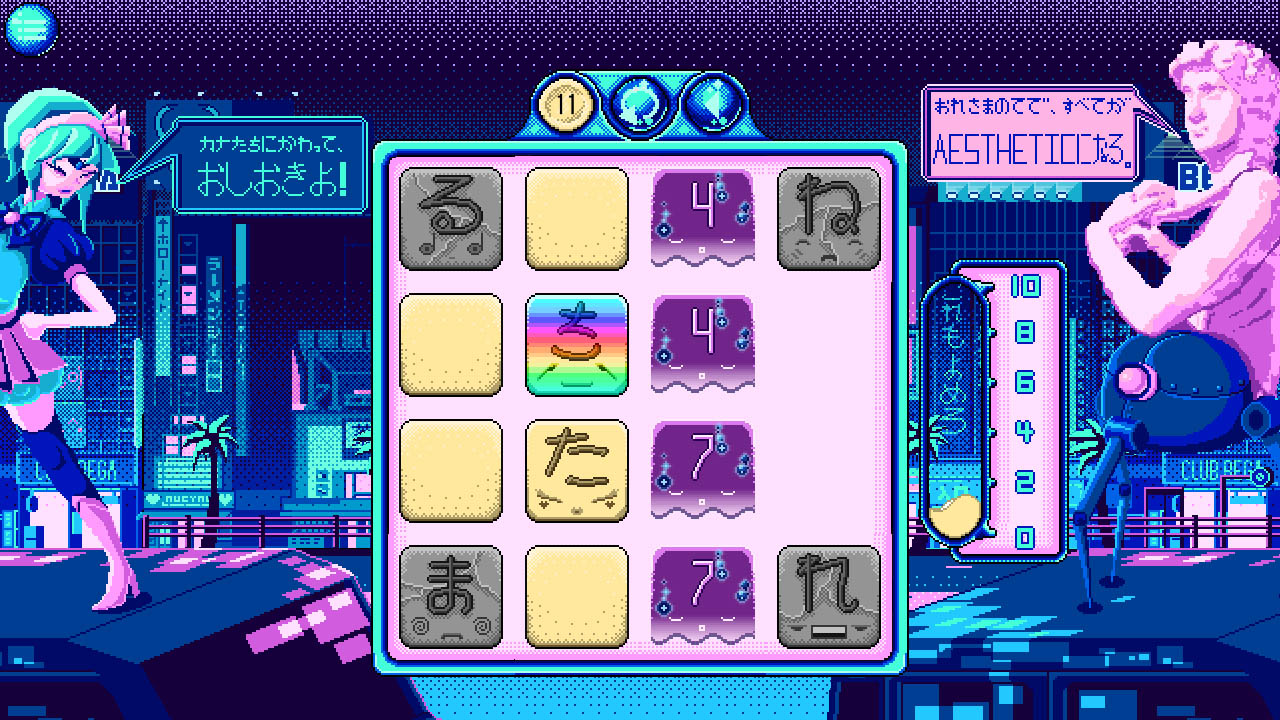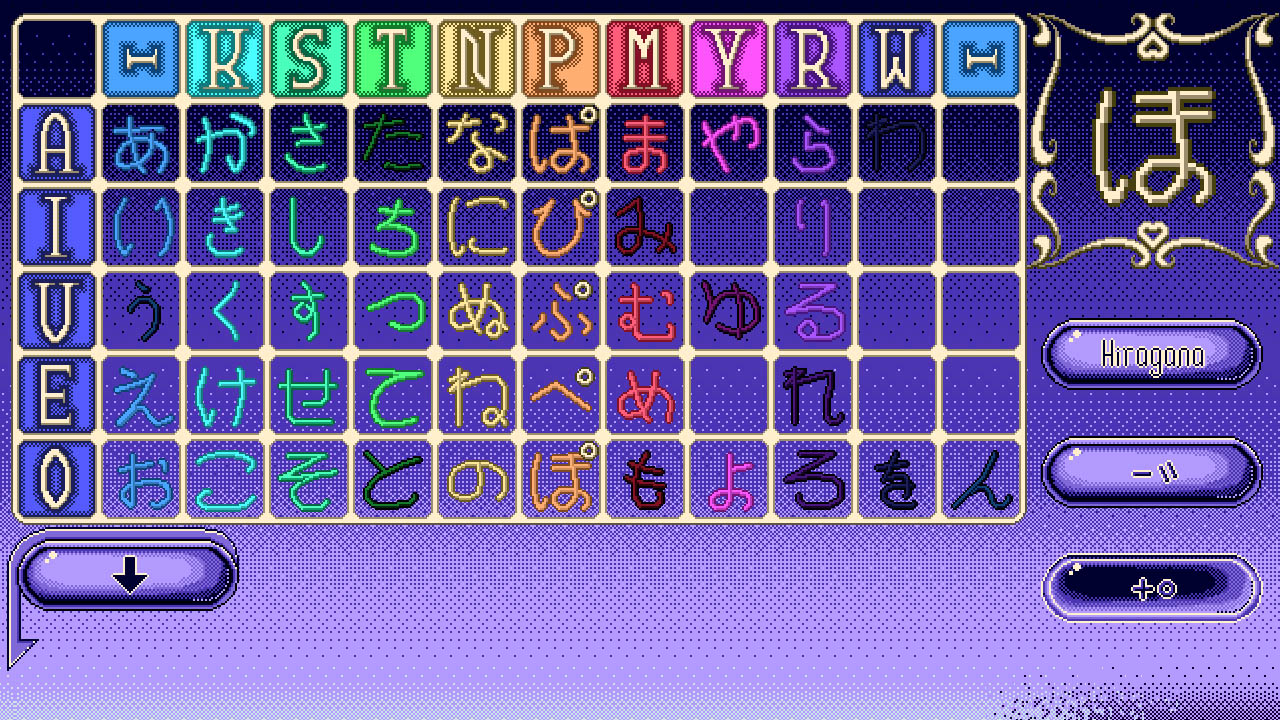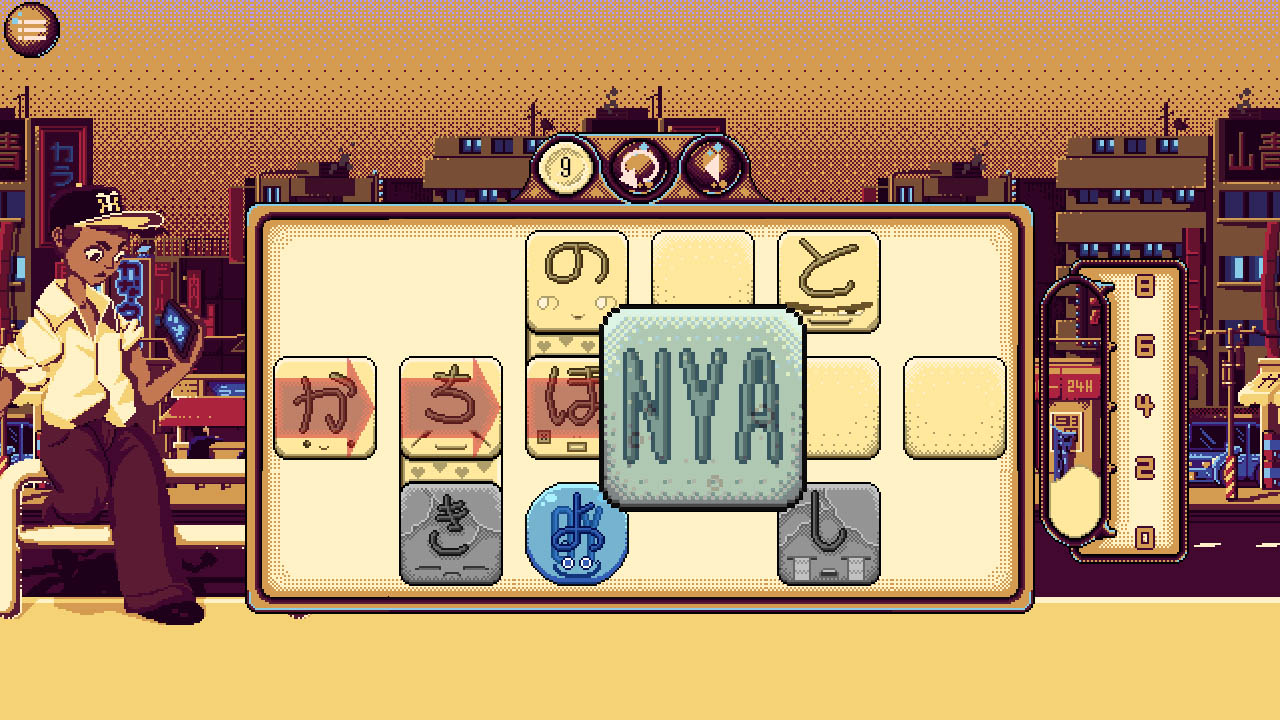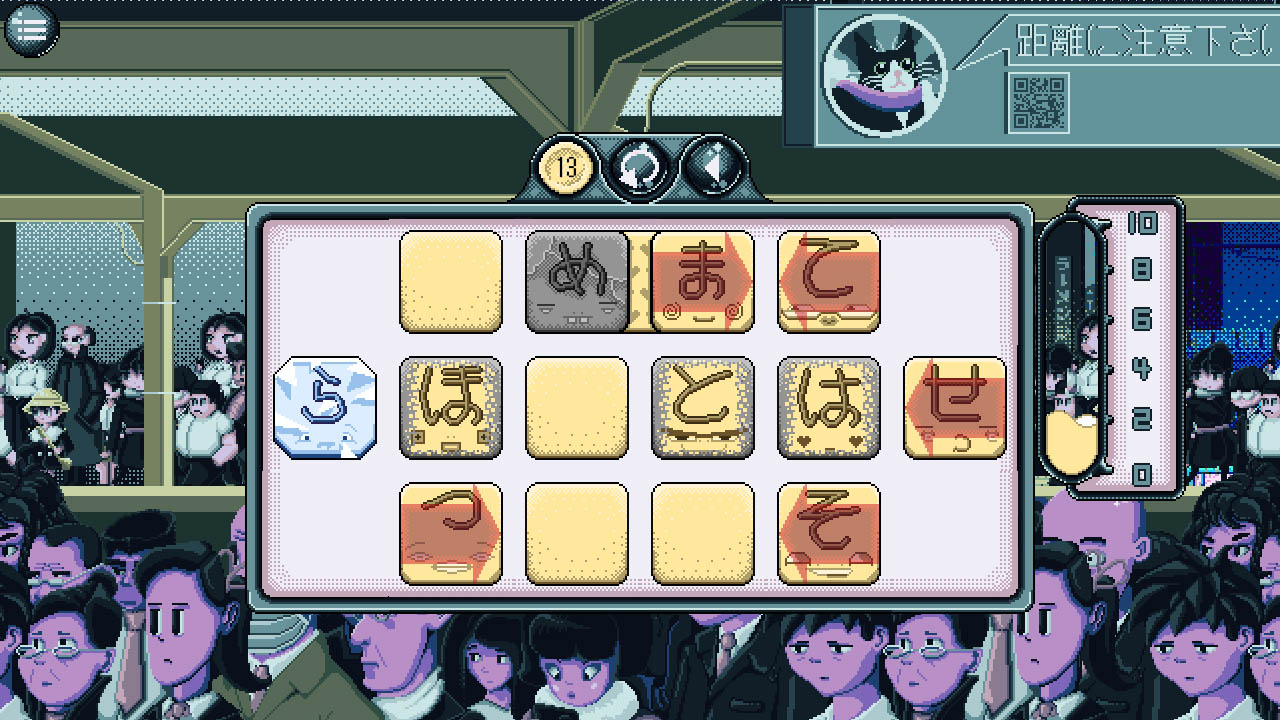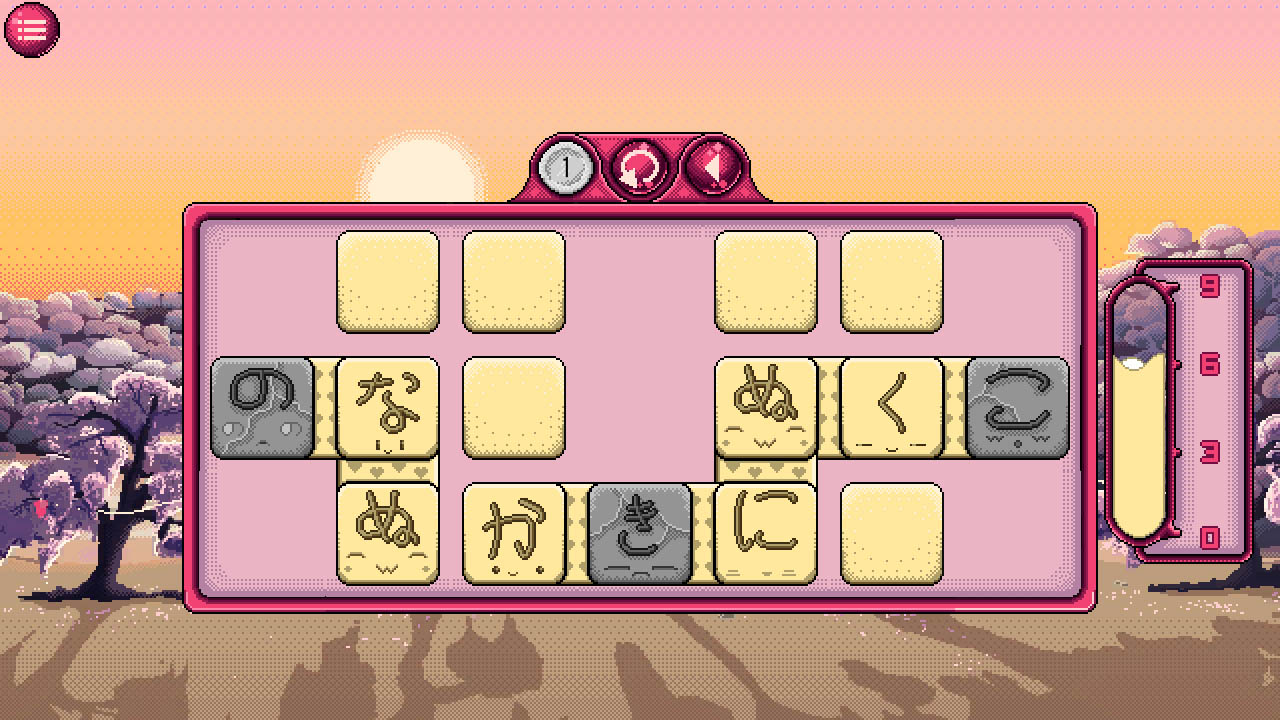難し です
I’m in the slow process of learning Japanese. With the help of Rocket Languages and my continual immersion into Japanese games, movies, and music, I’m getting to the point where I can occasionally dispute the English subtitles on the screen. I can hear the difference between the Japanese words for “paper” and “god.” I know “wa” from “ga.”
But I can’t read Japanese. That’s where I’m hoping Kana Quest can help. Without complicating matters (and likely getting the explanation wrong, anyway) the Japanese alphabet is composed of syllabaries: hiragana, katakana, and kanji. The latter uses symbols to represent an entire word or meaning. Hiragana and katakana use symbols for syllables—one for monographs (ka, ki, ko), two for digraphs (kya, kyu, kyo).
Am I boring you already? Sorry. The point is that there are a lot of kana to learn, not to mention all the overlap. It’s tough, but Kana Quest wants to help. And it does…to an extent.
Kana Quest uses match-em puzzle mechanics to teach you the symbols and their sounds. The goal is to connect the kana by their shared sounds in as few moves as possible. The symbol for Ka, for example, can fit next to any tile that begins with the K sound and ends with “ah.” So, for example, it can match up with the symbols for ku and na. Slide all the symbols together, and it’s on to the next level.
Of course, it’s not going to be that easy, as there are two factors at work. First, you need to recognize the kana. That’s where the educational part comes into play. Kana Quest allows you to tap a tile to hear its pronunciation at any time, and you’ll need to rely on this early and often.
Symbols may eventually stick with repetition, but it’s easy to forget them if you don’t stay with it. I reached the point where I could identify sounds with their tiles while playing the game, but couldn’t write the character from memory when not playing.
It’s also worth noting that Kana Quest doesn’t do much with word construction or definitions. You’re learning to identify symbols, but you’re not putting them together in a way that teaches you to read them. It would be unfair to expect the game to provide that level of education.
What you can expect, however, is a pretty fun puzzle game. You can’t just drop the tiles wherever you want; they have to slide in the cardinal directions to touch or swap with others. So, once you’ve identified the tiles that should match, you have to figure out how to get them next to each other in a way that allows you to properly chain the tiles on the board. Some tiles can’t move at all, forcing you to bring the others to them. Some keep moving until they hit another object. Some can be merged to create new kana.
Kana Quest does a good job of ramping up the challenge with new tile mechanics, and the developers don’t forget you’re supposed to be learning here. They lower the puzzle difficulty as new kana are introduced to help you get comfortable with the symbols. Also, there are no tests; as with most puzzle games, you’re graded on the number of moves you took to solve each level. Just keep learning and playing. And if you’re having trouble, you can always rewind or restart a level.
All of this is presented with colorful, cheerful graphics that would feel right at home on the Game Boy Advance. The visuals obviously have an Eastern flair, and who would’ve thought that simply adding little arms and legs to tiles would give them so much personality. In the hands of a U.S. educational developer, they would’ve ended up with sunglasses, bandanas, and attitudes in an attempt to be cool. I appreciate this scaled back, friendlier approach.
I’m not sure how helpful any of this will be without supplemental educational materials. Paired with my Rocket Languages lessons, however, I found Kana Quest to be a great way to get some symbol memorization practice in. And yeah, as far as match-em puzzles go, the gameplay is fun and fairly unique. Some may be entertained even if they’re not learning Japanese. Recognizing and matching symbols is what we’re doing in mahjong, after all; Kana Quest just makes that step part of the challenge.
Review: Kana Quest (Nintendo Switch)
Good
Kana Quest is a cute, friendly game that aims to teach you kana character recognition as you work through its numerous match-em puzzles. Some may be put off by the unfamiliar Japanese alphabet, but those who are willing to learn (or just want an additional challenge) should have fun picking up the basics of kana recognition and pronunciation.

